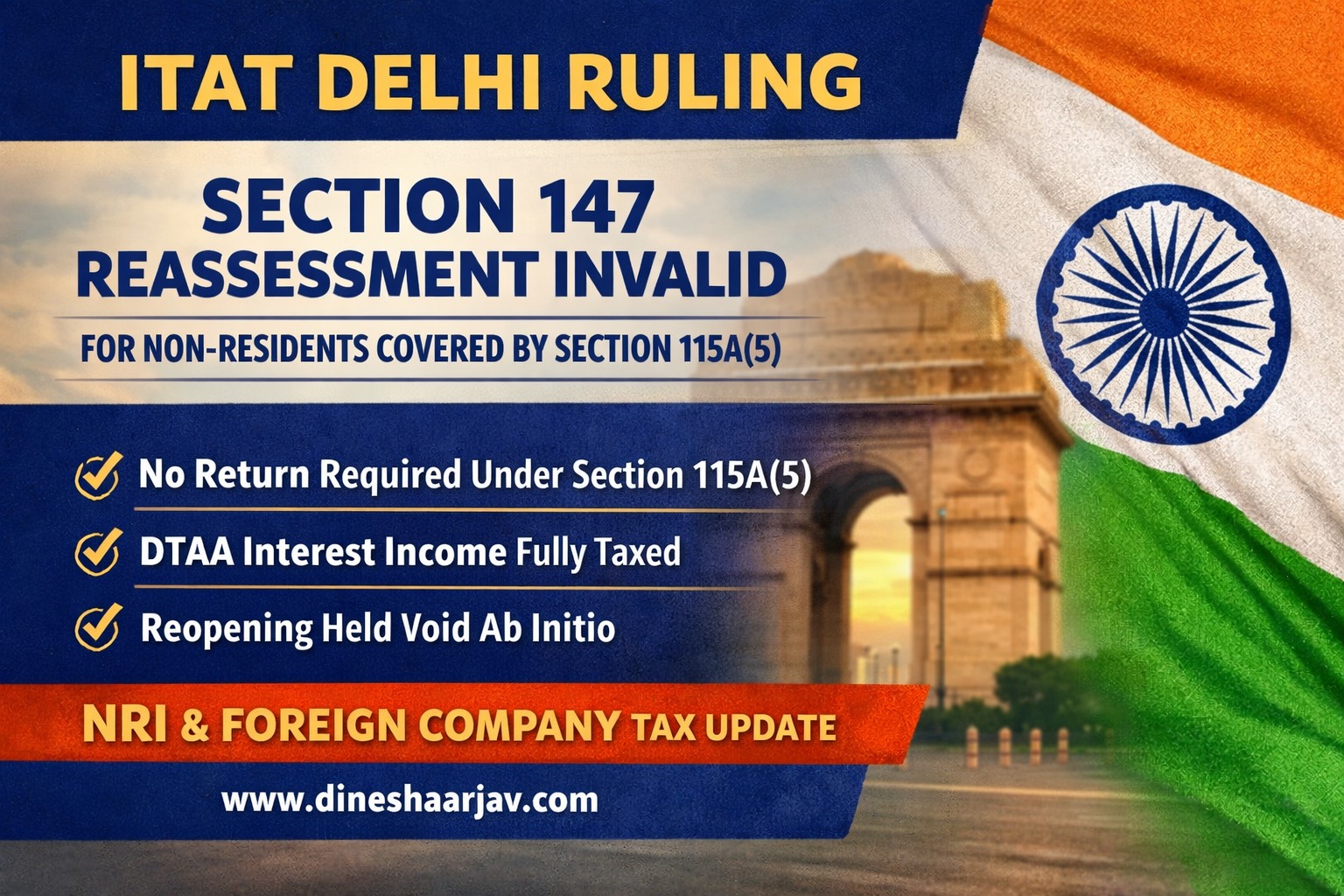 WhatsApp
WhatsApp
 Call Us
Call Us
 Email Us
Email Us
 Whatsapp Community
Whatsapp Community

If you're a Non-Resident Indian (NRI) and recently received a message or email from the Income Tax Department that mentions foreign assets, income from foreign sources, or filling Schedule FA and FSI, you are not alone.
Here's what the message typically looks like:
“Dear Taxpayer XXXX XXXX (PAN XXXXXX),
As part of ongoing global efforts to ensure compliance with tax regulations, India receives information concerning foreign assets and income such as bank accounts, interest, dividends, etc. If you hold any foreign assets or have income from foreign sources during FY 2024-25 relevant to AY 2025-26, then please choose the appropriate return form and fill Schedule FA/FSI...”
This automated tax notice is being sent out as part of India's compliance with the OECD's Common Reporting Standard (CRS) and FEMA monitoring, and in many cases, it's happening because NRIs are incorrectly filing tax returns as Residents in India or holding non-compliant bank accounts.
Thanks to the Global Automatic Exchange of Information (AEOI) framework and CRS, India now receives annual information from over 100 countries on:
If your return indicates you are a Resident, but foreign income or assets are reported via CRS, it creates a compliance mismatch.
Thousands of NRIs are unknowingly filing Income Tax Returns in India using ITR-1 or ITR-2 as Residents, due to one or more of the following reasons:
This leads to:
As per Section 6 of the Income Tax Act, you are treated as an NRI (Non-Resident) for a financial year if:
Remember: Your passport or visa is not proof of NRI status. Only physical presence in India matters under Indian tax law.
Under FEMA (Foreign Exchange Management Act), NRIs are not allowed to operate resident savings bank accounts.
They are only allowed to hold:
NRO (Non-Resident Ordinary) Account – for income from Indian sources like rent, dividends, pension
NRE (Non-Resident External) Account – for foreign income, fully repatriable
If you continue using a resident savings account, you are:
| Schedule | Purpose | Applicable To | ||||
| Schedule FA | Report foreign assets: bank accounts, stocks, real estate abroad | Only for Resident taxpayers | ||||
| Schedule FSI | Report foreign income: interest, salary, rent from outside India | Only for Resident taxpayers |
NRIs should not fill these schedules. If you receive a notice asking you to do so, it means your return is incorrectly filed as a Resident.
Determine Your Residential Status (for FY 2024-25):
Use the 182-day and 60/365-day rules to confirm if you qualify as an NRI.
Use the Correct ITR Form for NRI:
Typically, ITR-2 is applicable for NRIs. Avoid using ITR-1/ITR-4 unless advised by a qualified NRI tax consultant.
Do NOT Fill Schedule FA/FSI If You Are NRI:
These apply only to Resident Indians. Incorrect filling can create unnecessary compliance issues.
Update PAN KYC and Bank Details:
Make sure your PAN is correctly tagged as NRI. Also update KYC with banks and convert any resident bank account to NRO/NRE immediately.
Consult NRI Tax Experts:
Avoid DIY filings or general CAs who may not be aware of FEMA rules, CRS, DTAA, and NRI exemptions.
If you wrongly file as Resident and do not report your foreign assets, or if you report them incorrectly, you could face:
With over 25 years of experience in NRI taxation, FEMA compliance, global investments, and DTAA matters, we help NRIs across the globe:
Receiving an Income Tax notice for foreign asset disclosure can be stressful — but it’s usually because of incorrect NRI classification or outdated bank/KYC information.
Fixing it now can save you from severe penalties later.
Contact Us for NRI Tax Filing Support







Stay in the loop, subscribe to our newsletter and unlock a world of exclusive updates, insights, and offers delivered straight to your inbox.